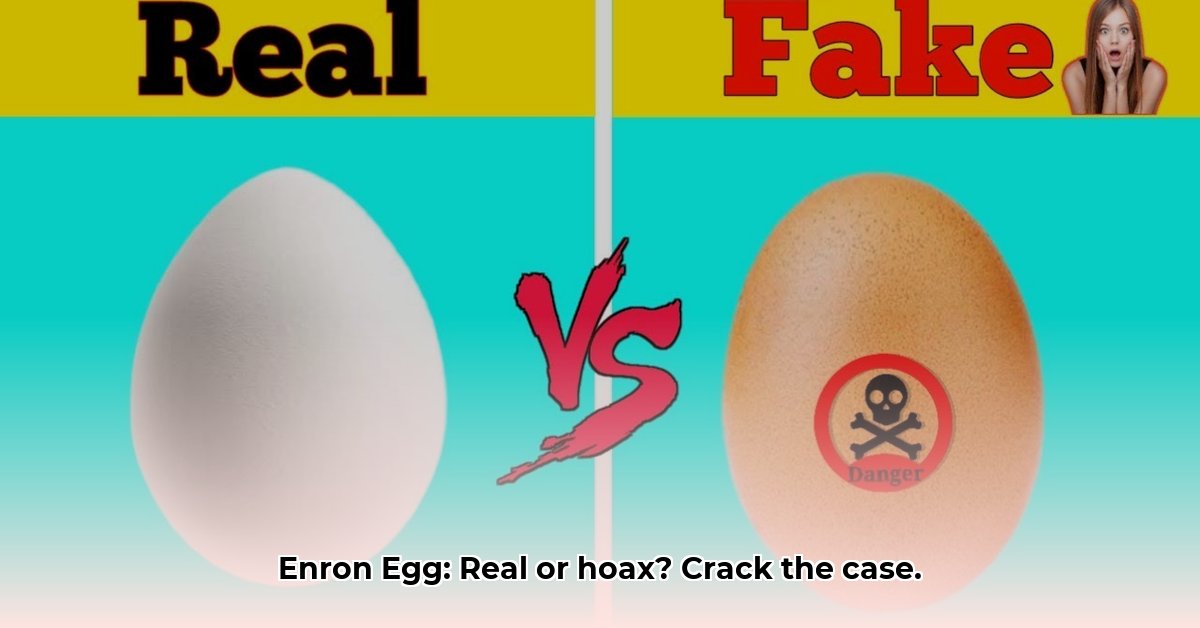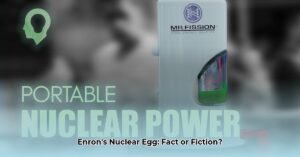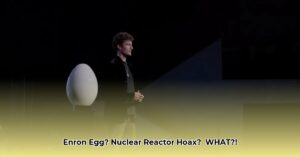No, the Enron Egg is not real. It’s a satirical marketing campaign launched in January 2024, playing on the infamous history of the defunct energy giant. This isn’t a groundbreaking technological marvel; it’s a well-executed hoax designed to get people talking – and thinking.
The Yolk’s on You: Deconstructing the Hoax
The Enron Egg presents itself as a revolutionary micro-nuclear reactor, promising to power homes for a decade. The sheer absurdity of a miniature nuclear power plant shaped like an egg should be the first clue. This isn’t about clean energy; it’s about clever social commentary. The campaign includes a professionally produced video featuring a charismatic “CEO” touting the egg’s impossible capabilities. This CEO is none other than Cole Gaydos, the mastermind behind the “Birds Aren’t Real” movement. His presence adds another layer of surrealism, hinting at the satirical nature of the project.
From Scandal to Satire: Enron’s Ironic Rebirth
Enron’s history is one of spectacular downfall. Once a titan of the energy industry, the company collapsed in 2001 under the weight of massive accounting fraud, leaving countless individuals financially devastated. This campaign leverages that dark legacy, using humor to reintroduce the Enron name in a completely unexpected way. It’s a high-risk strategy, walking a tightrope between witty commentary and potentially insensitive exploitation of a sensitive historical event.
Birds, Eggs, and the Art of the Hoax: A Deeper Dive
The Enron Egg campaign shares DNA with Gaydos’s “Birds Aren’t Real” movement. Both campaigns employ a similar brand of absurdist humor, blurring the lines between reality and fiction in the digital age. They force us to question what we see online, reminding us that not everything is as it seems. The creators likely intended this connection as a subtle wink to those familiar with Gaydos’s work, further emphasizing the satirical intent.
Cracking the Code: Decoding the Enron Egg’s Message
The Enron Egg isn’t just a random prank. It’s a multi-layered satire targeting corporate greed, misleading marketing tactics, and our society’s susceptibility to outlandish promises. It also raises questions about the ethics of using a corporate scandal, which caused real harm, as fodder for humor. Some suggest it trivializes Enron’s misdeeds, while others see it as a powerful way to keep the conversation about corporate accountability alive.
The Public Reacts: Scrambled Opinions
The Enron Egg campaign generated a mixed bag of reactions. While some lauded its creativity and sharp satire, others criticized it as insensitive and inappropriate, given the real-world consequences of Enron’s actions. This diverse response highlights the complexities of using humor to address sensitive historical events. There’s no easy answer, and the debate likely reflects broader societal divisions on how we process and reconcile with corporate misconduct.
Fact vs. Fiction: What We Know (and Don’t Know)
| Feature | Description |
|---|---|
| Product | Fictional micro-nuclear reactor |
| Purpose | Satire, social commentary on corporate culture and misinformation |
| Launch Date | January 2024 |
| Creator(s) | Likely orchestrated by Cole Gaydos, though others may be involved |
| Availability | Non-existent |
The table clarifies the fictional nature of the Enron Egg, emphasizing its satirical purpose. While Cole Gaydos’s involvement is highly probable, the possibility of other collaborators remains.
The Future of the Egg: Unanswered Questions
The Enron Egg raises intriguing questions about the future of satire and online marketing. Can this type of campaign actually rehabilitate a tarnished brand image? Or does it risk normalizing past misdeeds? Is it a harmless prank or a potent form of social commentary? These questions will likely continue to be debated as the lines between reality, satire, and marketing become increasingly blurred in our digital world. For now, the Enron Egg serves as a compelling case study in the power – and potential pitfalls – of online satire.







